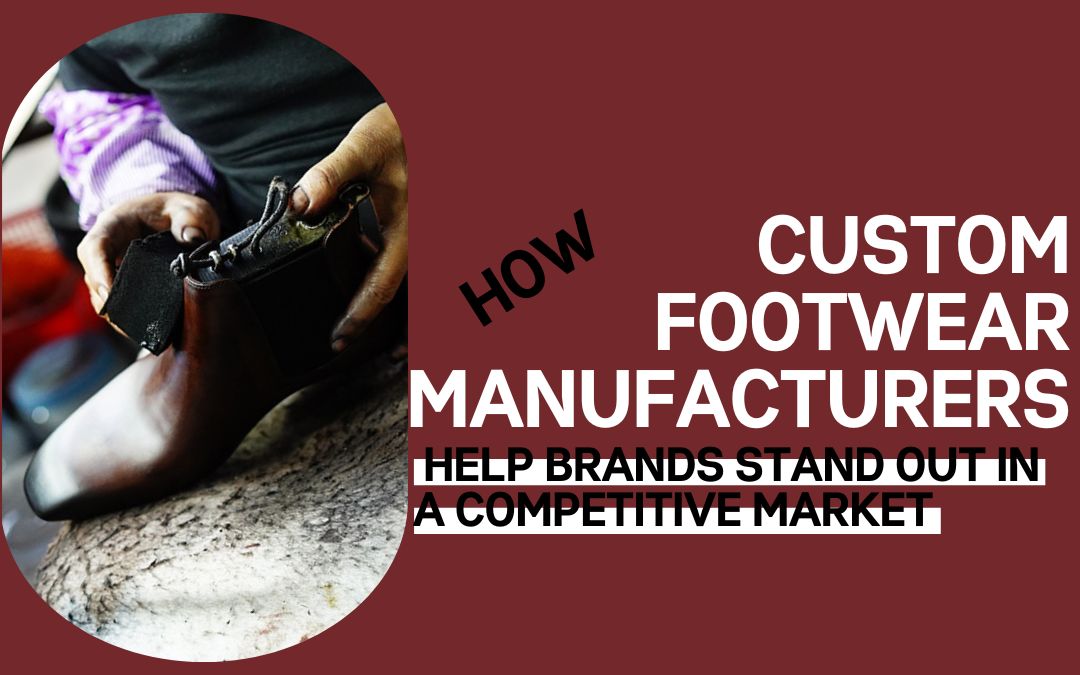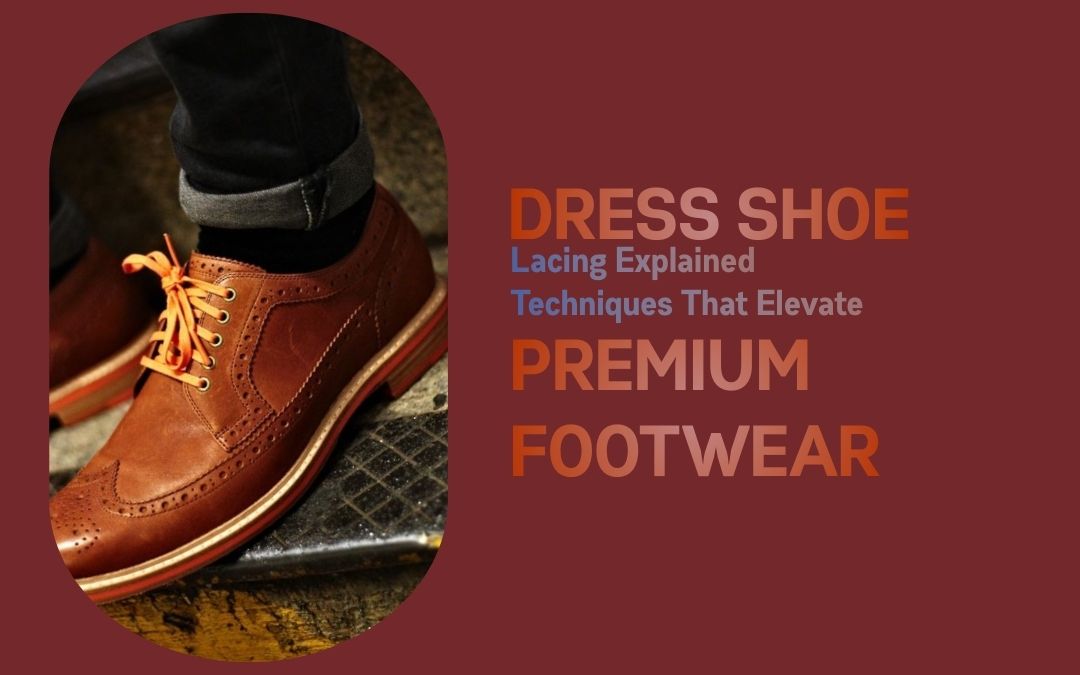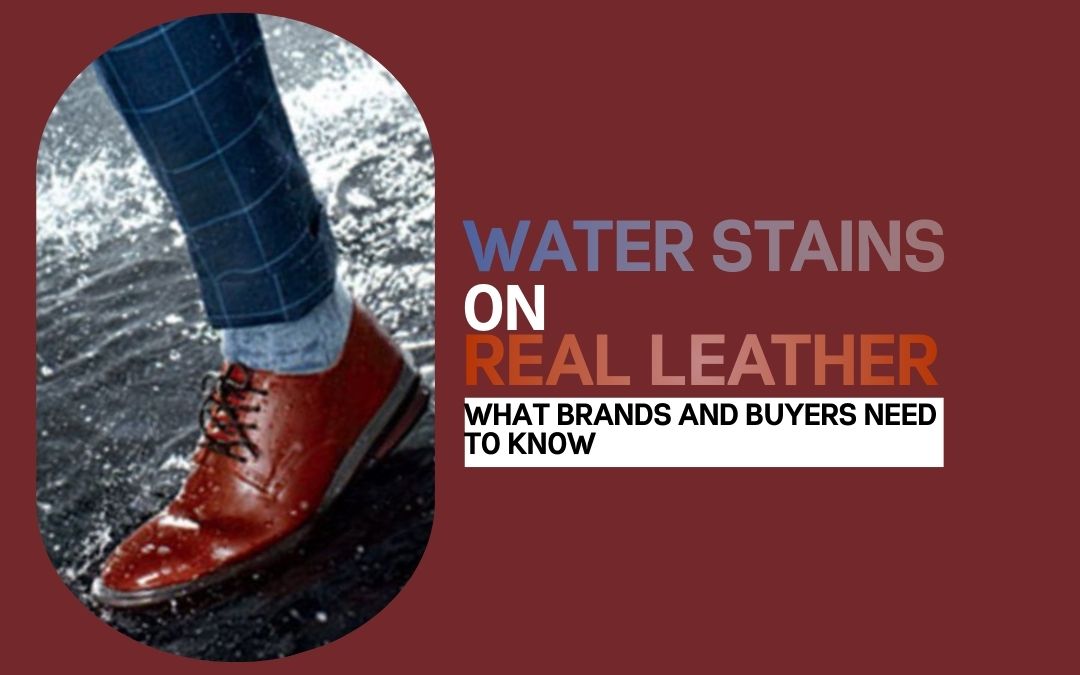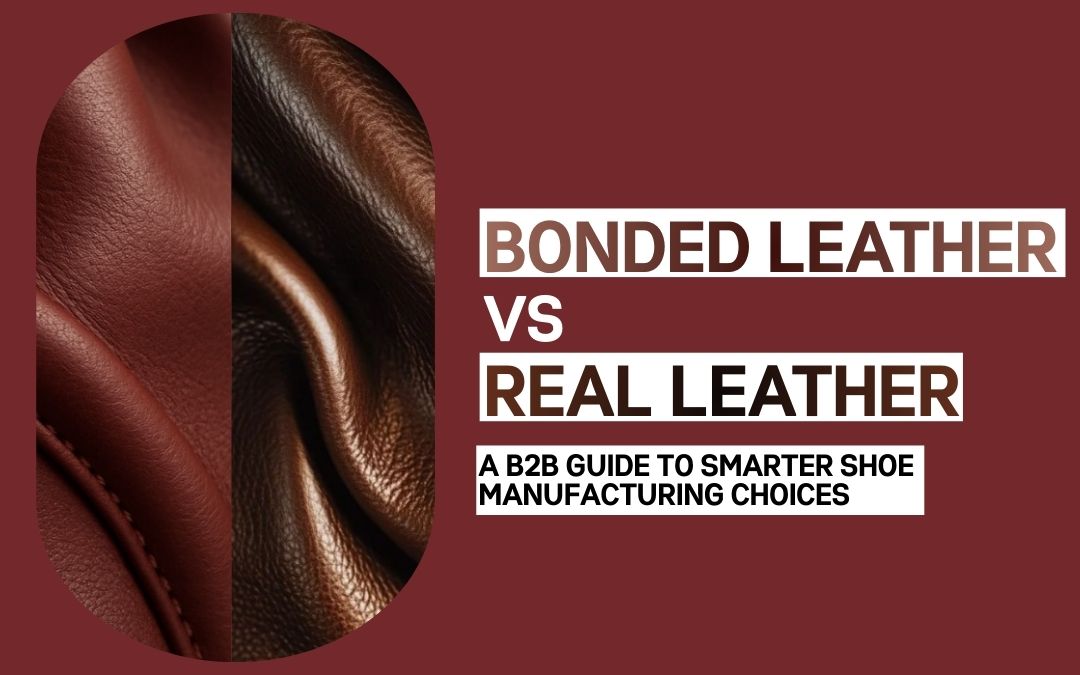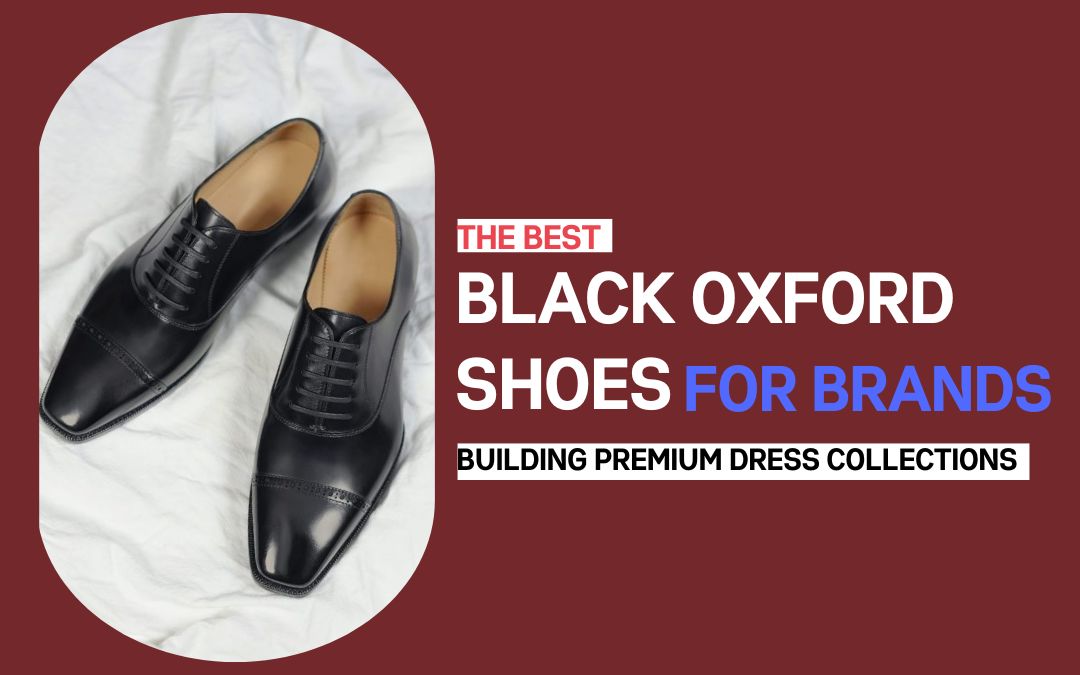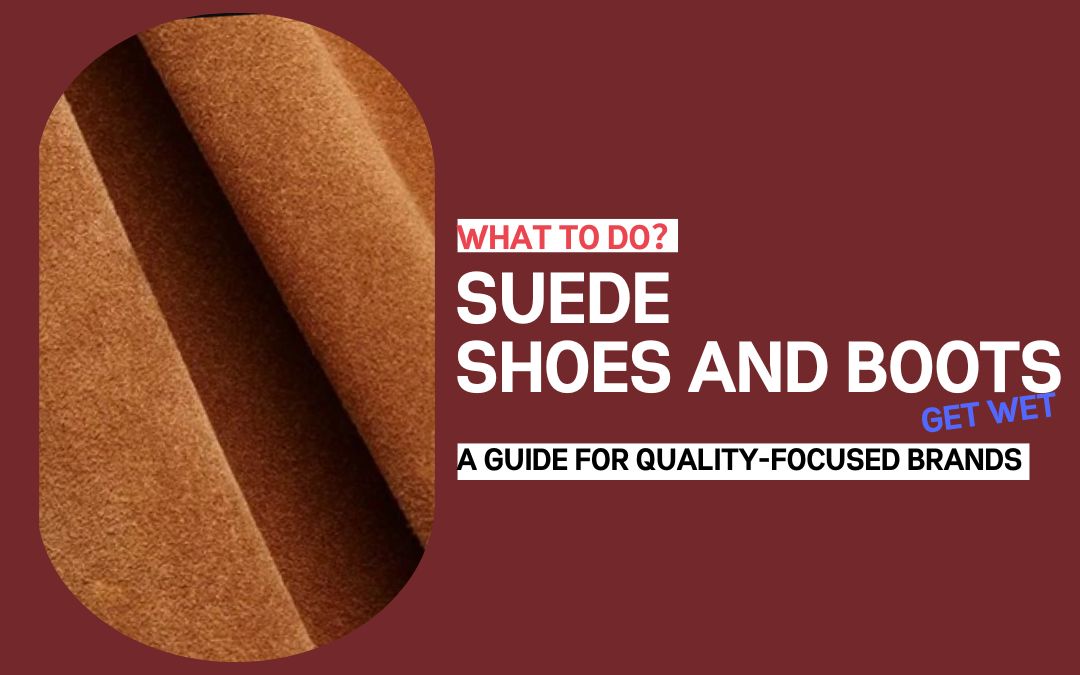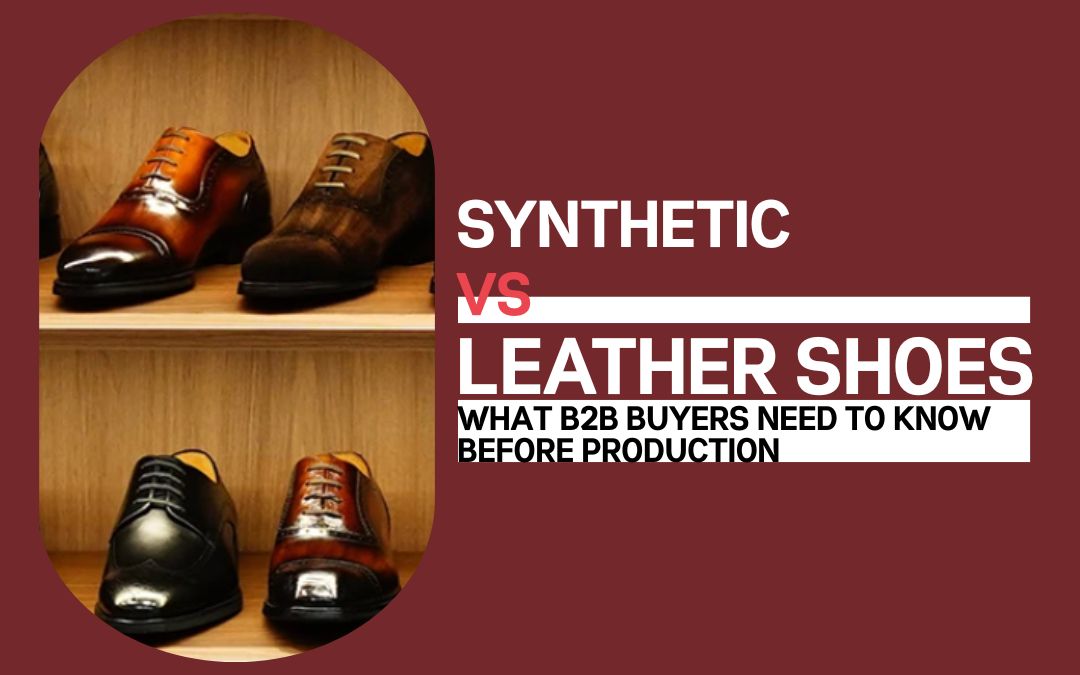Introduction: The Shift Toward Custom Footwear Manufacturing
In recent years, the footwear industry has experienced a significant shift. Small and mid-sized brands, seeking to differentiate themselves in an increasingly saturated market, are moving away from mass-produced models and embracing custom-made footwear. This transformation is driven by a desire for uniqueness, quality control, and enhanced branding flexibility.
For modern brands, customization offers a powerful way to stand out. It allows for tailored design, control over materials, and the opportunity to create products that truly reflect the brand’s ethos. As B2B brands increasingly recognize the value of customization, partnering with the right custom footwear manufacturer has become a strategic advantage—one that offers more than just a product, but a pathway to long-term brand identity and market differentiation.
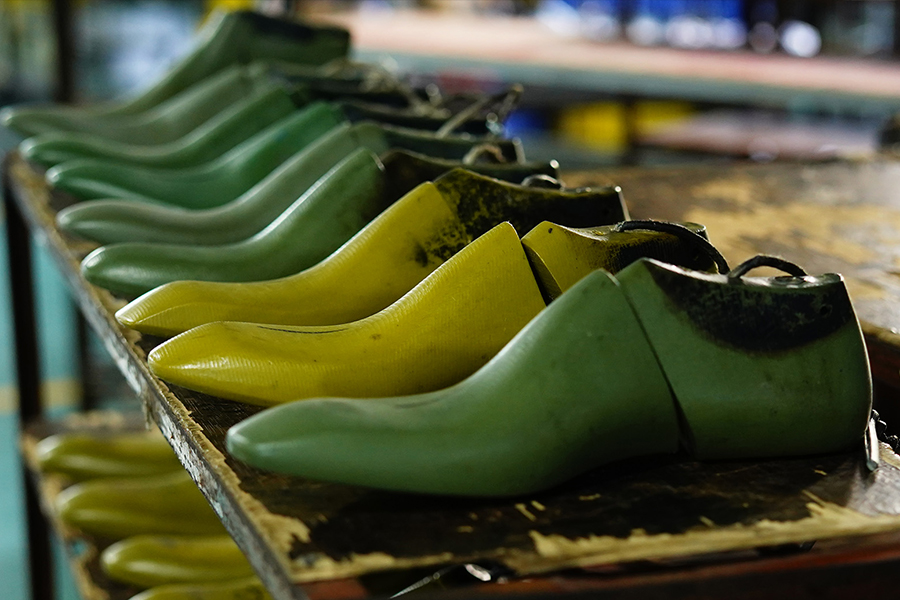
The Key Benefits of Working with Custom Footwear Manufacturers
Design Flexibility and Brand Identity
One of the most compelling reasons to work with custom footwear manufacturers is the design flexibility they offer. Custom production allows brands to control every detail of their footwear—from the last shapes (the mold for the shoe’s fit) to the choice of leather grades and finishes. This level of control ensures that every pair aligns with the brand’s aesthetic, making it easier to create a cohesive collection that resonates with your target market.
Additionally, custom manufacturers offer access to premium materials such as full-grain leather, suedes, and unique patina finishes, reflecting high-quality craftsmanship. With private labeling, brands can add their logo, distinctive packaging, and signature details without the burden of running full-scale in-house production. This makes customization an efficient way to build a brand identity while maintaining product uniqueness.
Better Quality and Craftsmanship
The quality of craftsmanship is often the key differentiator between custom footwear and mass-produced options. Custom manufacturers use skilled artisans who ensure consistency across every pair, with a focus on handcrafted precision. Techniques such as Goodyear welt and Blake stitch, which are known for their durability and ease of resoling, are common in custom production.
For example, Hengxin, with over 14 years of experience, is known for its Goodyear welt construction and hand-painted patina finishes. These specialized techniques, coupled with exceptional craftsmanship, are rare among Chinese manufacturers, and they provide brands with products that are not only durable but visually stunning.
Scalable and Cost-Effective Production
While custom footwear may seem like a high-end service, it is also surprisingly adaptable to small to mid-sized brands. Custom shoe manufacturers often offer flexible minimum order quantities (MOQs), making it easier for smaller brands to test designs or run limited edition collections without the financial risk of mass production. By optimizing the cost structure—through better material sourcing, efficient production processes, and reduced waste—these manufacturers can deliver quality shoes at competitive prices.
The key here is partnership: Custom shoe manufacturers like Hengxin grow alongside your business, adapting to market shifts and scaling production as needed. This partnership ensures that small brands can remain agile while still accessing premium craftsmanship and materials.
What Makes a Great Custom Footwear Manufacturer
Proven Expertise and Technical Capability
When choosing a custom footwear manufacturer, it’s essential to assess their expertise and technical capability. Experience in premium shoe construction—particularly techniques like Goodyear welt and patina finishes—is a strong indicator of a manufacturer’s ability to deliver high-quality results. Additionally, attention to detail throughout the manufacturing process, from cutting the leather to final finishing, ensures that each pair meets luxury standards.
A great custom manufacturer also blends modern technology with traditional craftsmanship. For instance, using CAD design for precision and laser cutting for efficiency, alongside artisan methods, results in high-quality shoes that align with both innovative trends and classic standards.
Transparent Communication and Collaboration
Successful collaboration is a hallmark of any great manufacturing partnership. Custom footwear manufacturers who prioritize transparent communication—providing detailed updates, supporting design changes, and answering questions promptly—are the ones that can truly help your brand succeed. Moreover, the ability to validate prototypes through sample testing ensures that the final product meets your expectations before large-scale production begins.
A great example is Hengxin, which offers full transparency and collaboration, from initial design discussions to final production. With their OEM and ODM solutions, brands can maintain creative control while ensuring timely delivery of high-quality footwear.
Why the Future Belongs to Custom Shoe Manufacturing
Market Demand for Unique Offerings
Consumers today are looking for individuality. They want limited edition, personalized styles and artisanal finishes that mass-produced shoes simply can’t offer. Custom footwear allows brands to differentiate themselves in a crowded marketplace by offering products that are unique, high-quality, and made to the exact specifications of the customer.
As the demand for unique, custom-made footwear continues to rise, brands that leverage custom manufacturing have a distinct competitive edge. Custom shoes allow you to cater to a niche market that values craftsmanship, style, and individuality over generic options.
Sustainability and Ethical Appeal
Small-scale, custom footwear production is inherently more sustainable. By producing in smaller batches, brands reduce overstock and waste—key concerns for an industry increasingly focused on environmental impact. Additionally, many custom footwear manufacturers prioritize ethical production practices, using transparent sourcing and employing local artisans. This aligns with global sustainability standards and appeals to conscious consumers.
The Advantage for B2B Clients
For B2B brands, the advantages of working with a custom shoe manufacturer are clear. OEM manufacturers like Hengxin empower brands with creative freedom and reliability. Whether you’re a private-label startup or a mid-sized fashion brand, custom footwear production offers flexibility, premium craftsmanship, and scalability. These advantages enable you to build a strong, distinctive brand identity while meeting market demands.
Conclusion: Partnering with the Right Manufacturer for Long-Term Growth
Choosing the right custom footwear manufacturer is more than just a production decision—it’s a strategic investment in your brand’s identity, product quality, and long-term growth. The best partnerships are built on shared values of craftsmanship, communication, and consistency.
For brands looking to stand out in a competitive market, partnering with a custom footwear manufacturer like Hengxin—renowned for its expertise in Goodyear welt construction and patina finishing—is an opportunity to create products that truly resonate with customers and elevate your brand to the next level.
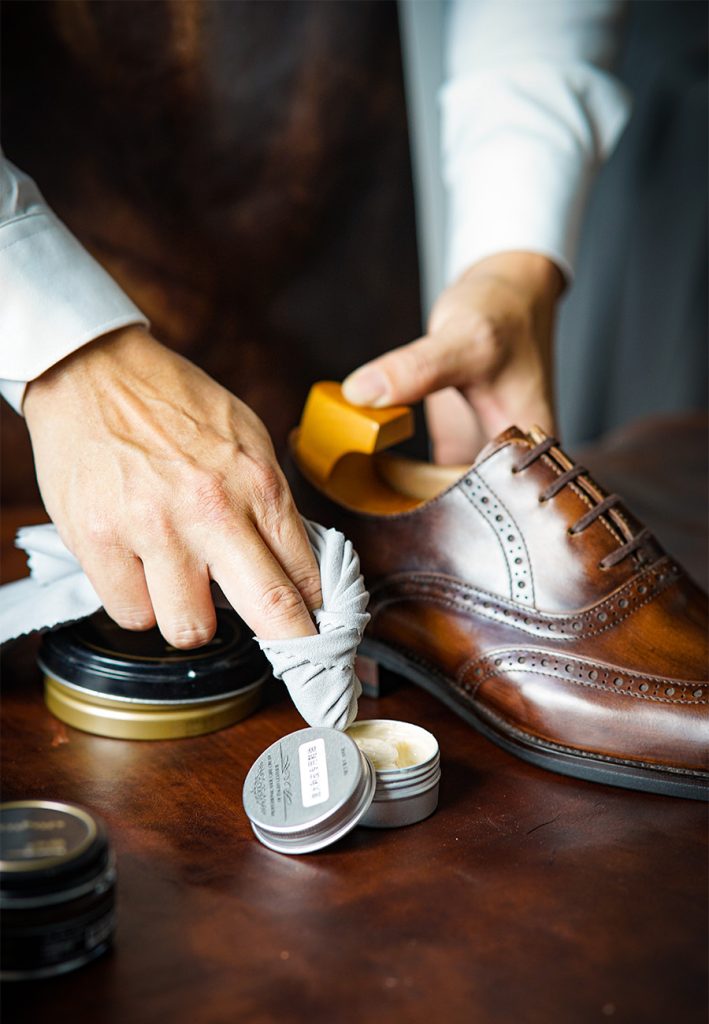
FAQ
What’s the difference between mass production and custom shoe manufacturing?
Mass production focuses on high volumes and uniformity, while custom shoe manufacturing offers tailored designs, premium materials, and attention to detail, making each pair unique.
How can small brands start working with a custom shoe manufacturer?
Small brands should start by defining their product vision, researching manufacturers, and requesting samples to evaluate quality. Clear communication and a solid understanding of design requirements are key to a successful partnership.
What are the main benefits of OEM or private-label footwear production?
OEM and private-label production provide brands with the flexibility to create unique designs without running their own production lines, allowing them to focus on branding, marketing, and sales.
How does Goodyear welt construction improve shoe quality?
Goodyear welt construction is known for its durability, water resistance, and ease of resoling. It enhances the longevity of shoes and ensures that they can withstand wear and tear over time.
What makes patina hand-coloring valuable for luxury shoes?
Patina hand-coloring offers a unique, personalized finish that creates a rich, layered effect on the leather. This craftsmanship adds value by making each pair one-of-a-kind, with a premium, artisanal aesthetic.

